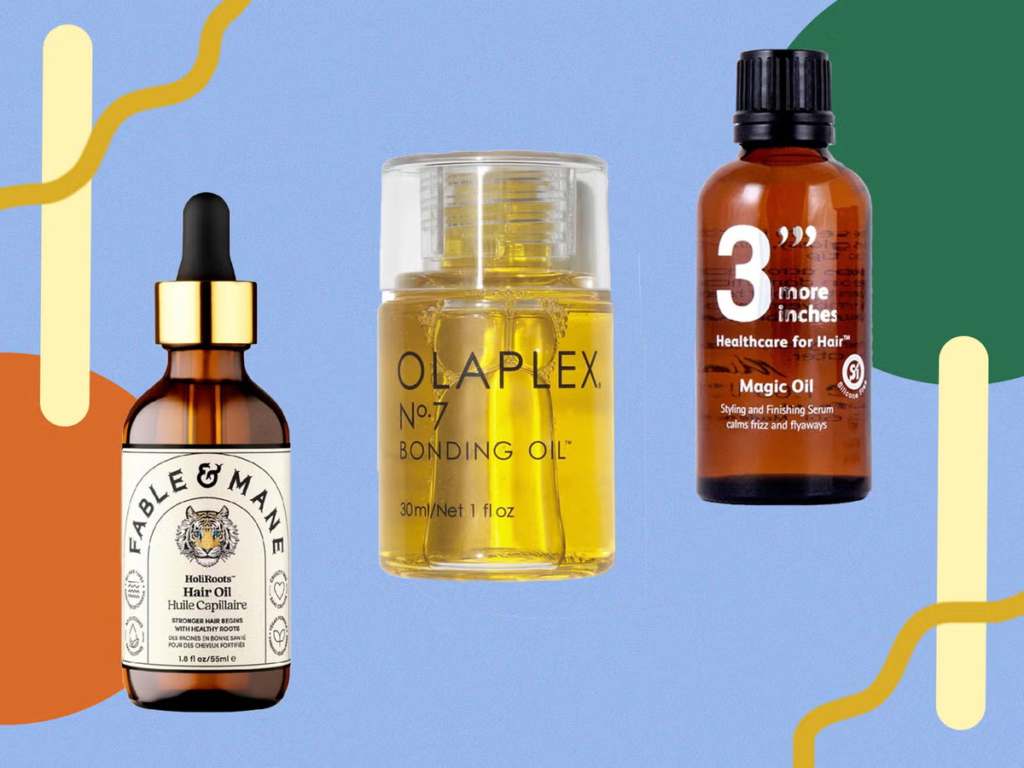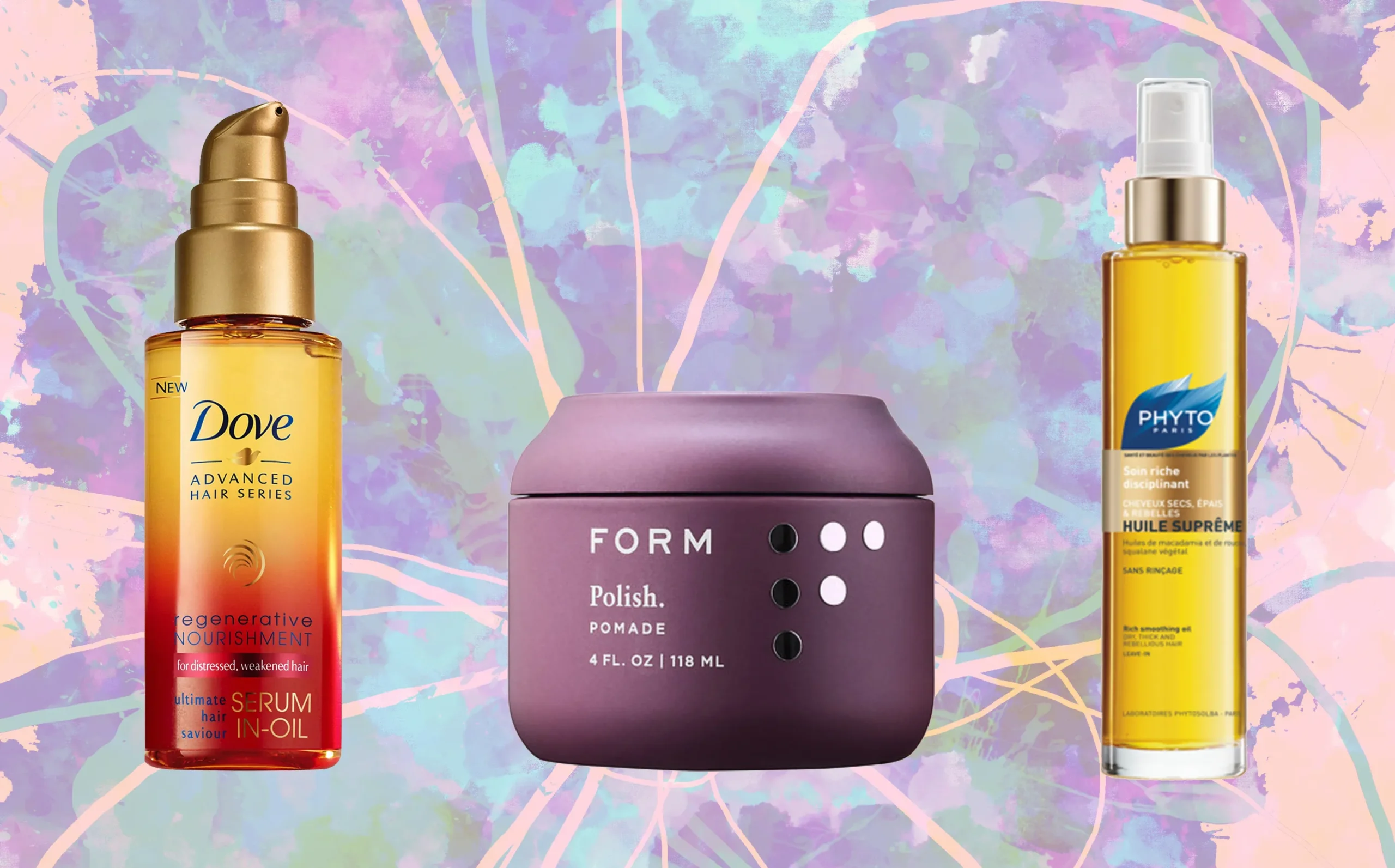Dry hair can be a frustrating and persistent problem. It often appears dull, brittle, and prone to breakage. While there are numerous products available, finding the right best hair oil can make a significant difference. This guide will delve into the world of hair oils, helping you understand the causes of dry hair, the benefits of hair oils, and how to choose the perfect one for your needs.
Understanding Dry Hair
Before diving into hair oils, it’s crucial to understand the root causes of dry hair. Several factors contribute to hair dryness:
Lack of moisture: Insufficient hydration from within the hair shaft.
External factors: Frequent heat styling, harsh chemicals, sun exposure, and pollution.
Natural hair texture: Some hair types, like curly and coily, are naturally more prone to dryness due to their structure.
Underlying health conditions: Certain medical conditions can impact hair health, including thyroid disorders and scalp conditions.
The Benefits of Hair Oil
Hair oils offer a plethora of benefits for dry hair:
Deep moisturization: They penetrate the hair shaft, replenishing lost moisture.
Protection: They create a barrier against environmental damage, preventing further moisture loss.
Strengthening: Hair oils nourish the hair, reducing breakage and split ends.
Shine enhancement: They add a healthy luster to dull hair.
Scalp health: Some oils can soothe the scalp and reduce dandruff.
Choosing the Right Hair Oil
With a vast array of hair oils available, selecting the best one can be overwhelming. Consider the following factors:
Hair type: Different hair types have unique needs. For example, fine hair might benefit from lightweight oils, while thick, coarse hair requires richer options.
Hair concerns: If you have specific issues like dandruff, frizz, or color-treated hair, look for oils with targeted ingredients.
Ingredient profile: Opt for oils rich in vitamins, antioxidants, and essential fatty acids.
Consistency: Choose a consistency that suits your preference. Lighter oils are ideal for daily use, while thicker oils are better for deep conditioning treatments.
Popular Hair Oils for Dry Hair
Here’s a breakdown of some commonly used hair oils and their benefits:
Argan oil: Known for its high vitamin E content, argan oil deeply moisturizes and protects hair.
Coconut oil: Rich in fatty acids, coconut oil penetrates the hair shaft effectively, reducing protein loss.
Olive oil: A classic choice, olive oil nourishes and softens hair, helping to prevent breakage.
Jojoba oil: Similar to the skin’s natural sebum, jojoba oil balances moisture and controls frizz.
Almond oil: Packed with vitamins and minerals, almond oil hydrates and adds shine.
Castor oil: Thick and viscous, castor oil is excellent for promoting hair growth and thickening.

How to Use Hair Oil
The application method depends on the oil’s consistency and your hair type. Here are some general guidelines:
Pre-shampoo treatment: Apply oil to dry hair, focusing on the ends and mid-lengths. Leave it on for at least an hour or overnight for deeper conditioning.
Mid-length and ends treatment: For daily use, apply a small amount of oil to damp hair, concentrating on the areas prone to dryness.
Scalp treatment: Massage a few drops of oil into the scalp to nourish and soothe.
Hair mask: Mix hair oil with other ingredients like honey or yogurt for an intensive hair mask.
Additional Tips for Dry Hair
Limit heat styling: Excessive heat can exacerbate dryness.
Protect from the sun: Use hats or hair products with SPF to shield your hair from harmful UV rays.
Regular trims: Get rid of split ends to prevent further damage.
Hydrated diet: Consume plenty of water and foods rich in omega-3 fatty acids.
Gentle hair care: Avoid harsh shampoos and hot water.
By understanding the causes of dry hair, selecting the right oil, and incorporating proper hair care practices, you can achieve healthier, more hydrated locks. Remember, consistency is key. With patience and the right approach, you’ll notice a significant improvement in your hair’s condition.
Hair Oils for Specific Hair Types and Concerns
Hair Oils for Curly Hair
Curly hair tends to be drier than straight hair due to its natural shape. Look for hair oils that provide intense hydration and definition.
Coconut oil: A classic choice for curly hair, it helps to define curls and reduce frizz.
Jojoba oil: Balances moisture and adds shine without weighing down curls.
Castor oil: Can help thicken and strengthen curly hair, promoting growth.
Hair Oils for Color-Treated Hair
Color-treated hair is often more porous and prone to dryness. Choose hair oils that protect color and add moisture.
Argan oil: Rich in antioxidants, it helps to prevent color fading and adds shine.
Olive oil: Moisturizes and softens hair without stripping color.
Avocado oil: Packed with vitamins and nutrients, it nourishes and repairs damaged hair.
Hair Oils for Fine Hair
Fine hair requires lightweight oils that won’t weigh it down. Look for oils with a light texture.
Jojoba oil: Regulates sebum production and adds shine without greasiness.
Almond oil: Lightweight and hydrating, it adds moisture without weighing down fine hair.
Grapeseed oil: Absorbs quickly, providing hydration without greasy residue.
Hair Oils for Scalp Issues
If you’re dealing with dandruff, itchiness, or other scalp concerns, choose oils with anti-inflammatory and antimicrobial properties.
Tea tree oil: Known for its antifungal and antibacterial properties, it helps soothe the scalp and reduce dandruff.
Lavender oil: Calms the scalp and promotes relaxation.
Rosemary oil: Stimulates hair growth and improves circulation.

Hair Oils for Hair Growth
While hair oils cannot magically accelerate hair growth, they can contribute to a healthier scalp environment, which is essential for hair growth.
Castor oil: Rich in ricinoleic acid, it is believed to stimulate hair follicles and promote growth.
Rosemary oil: Improves blood circulation to the scalp, potentially promoting hair growth.
Peppermint oil: Stimulates hair follicles and adds shine.
DIY Hair Oil Blends
You can create customized hair oil blends to address your specific needs. Experiment with different combinations of oils to find the perfect formula for your hair.
Example: For dry, damaged hair, combine argan oil, coconut oil, and jojoba oil.
Remember: Always do a patch test before trying a new hair oil, especially if you have sensitive skin.
By carefully considering your hair type and concerns, you can select the best hair oil to transform your locks. Consistent use and proper application will yield optimal results.
Frequently Asked Questions About Hair Oils
General Questions
Can I use hair oil every day?
Yes, you can use lightweight hair oils daily on your hair ends and mid-lengths. However, avoid applying heavy oils to the scalp every day as it can lead to buildup.
Can I use hair oil on wet or dry hair?
Both! You can apply hair oil to wet hair as a leave-in conditioner or to dry hair for added shine and protection.
How much hair oil should I use?
Start with a small amount and gradually increase as needed. A dime-sized amount is usually sufficient for most hair types.
Can hair oil cause hair loss?
No, hair oil itself does not cause hair loss. However, improper use or allergic reactions to certain oils can irritate the scalp and potentially lead to hair thinning.
To read more, click here

Leave a Reply